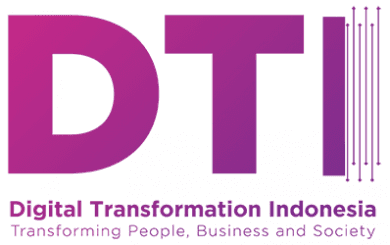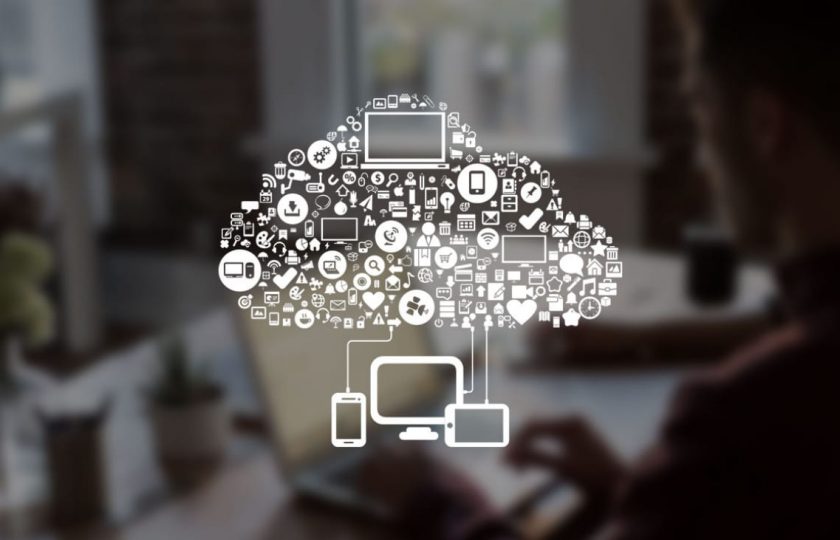According to Investopedia, Enterprise Resource Planning (ERP) is a platform companies use to manage and integrate the essential parts of their business. Many ERP software applications are critical to companies because they help them implement resource planning by integrating all the processes needed to run their companies with a single system.
ERP systems can also integrate planning, purchasing, sales, marketing, finance, human resource, and many more. For more information about ERP systems and software development DTI is going ask Widiyanto Kang – Business Development Manager Yonyou Singapore.
Software development in the last 30 years
Yonyou has grown to the stage it is now. We were established in 1988, and it has been 35 years this year. For a software company, it is a big challenge to exist for 35 years. Many software companies in the same period as us have disappeared. Why do we continue to exist??
The biggest secret is companionship. For more than 30 years, we have been accompanying the growth of the company. From the computerization of the financial department at the beginning to the ERP management of enterprise-level applications. The informatization development of customers is the development of Yonyou.
But today, the business of an enterprise is no longer limited to internal management issues such as financial management and supply chain management of an enterprise but also needs to be integrated with upstream and downstream enterprises and social service links. So, to solve these problems, our products and services have reached the 3.0 stage. This stage addresses the need for socialization.
It is necessary to build a business innovation platform, use the latest information technology to serve a new round of business innovation and help our company become a digital intelligence enterprise.
“Sometimes we joke to ourselves that we are pushed by the customers. If we are not good, customers will change to another provider. Customer business is changing and we have to change, it won’t work if the change is slow” Added Widiyanto
How to choose the right Saas Provider for the company?
First of all, we will check the business requirements and ultimately, provide the product that can solve business problems from various areas such as finance, inventory, sales, etc. Next, probably look at the key criteria like what is being prioritized. Is it the cost, service, quality, user-friendliness, safety, etc?
Widiyanto mention, We also have a product, YonSuite that is SaaS-based that is meant for growing companies. YonSuite is known as cloud native architecturean, it provides an integrated cloud service package of “Marketing, SCM, Manufacturing, Purchase, Finance, Taxation, HR, OA, CRM, and Projects“. It ables digital and intelligent of enterprises development, and achieves a customer-centric, data-driven, real-time operation, and easy-to-manage digital and intelligent enterprise (call as Digital Intelligent Enterprise).
Finding a SaaS provider is a journey. It takes time and effort but I believe the result will be fruitful.
Could you tell us why ERP is Important to serve businesses?
Widiyanto describe how important ERP for serve business. Here are seven points of why ERP is important.
- Integration of Business Processes: ERP software helps streamline and integrate various business processes across different departments within an organization. It provides a centralized platform to manage core functions like finance, human resources, inventory management, procurement, manufacturing, sales, and customer relationship management. By consolidating data and processes, an ERP system eliminates data silos and promotes efficient communication and collaboration between departments.
- Improved Operational Efficiency: ERP systems automate and streamline routine tasks, reducing manual effort and the chances of errors. By automating processes such as order management, inventory tracking, and financial reporting, ERP improves operational efficiency, reduces redundancy, and saves time. It enables employees to focus on higher-value tasks and provides real-time visibility into business operations, facilitating informed decision-making.
- Data Management and Reporting: An ERP system serves as a centralized repository of data, ensuring data consistency, accuracy, and integrity across the organization. It allows for easy data retrieval and reporting, generating insights into key performance indicators (KPIs), financial metrics, and other business analytics. This data-driven decision-making enables organizations to identify trends, identify areas for improvement, and make informed strategic choices.
- Enhanced Customer Relationship Management: ERP systems often include customer relationship management (CRM) modules that help manage customer interactions, sales processes, and marketing campaigns. By tracking customer information, purchase history, and preferences, ERP enables personalized customer experiences, improves customer satisfaction, and supports effective sales and marketing strategies.
- Scalability and Flexibility: ERP systems are designed to accommodate the growth and changing needs of businesses. They provide scalability and flexibility by allowing organizations to add or modify modules and functionalities as required. This adaptability helps businesses stay agile in a dynamic marketplace and facilitates expansion into new markets or business lines.
- Regulatory Compliance: Compliance with regulatory standards and industry-specific requirements is crucial for businesses. ERP systems often include features to ensure compliance with accounting standards, tax regulations, data privacy laws, and industry-specific regulations. By automating compliance-related processes and maintaining accurate records, an ERP system helps businesses meet legal obligations and reduces the risk of penalties or legal issues.
- Supply Chain Management: ERP systems play a vital role in managing the supply chain by optimizing inventory levels, coordinating procurement, and facilitating demand forecasting. They enable organizations to track materials, monitor production, manage suppliers, and ensure timely delivery of goods or services. Effective supply chain management supported by ERP improves efficiency, reduces costs, and enhances customer satisfaction.
Overall, an ERP system provides a comprehensive and integrated solution to manage and streamline business processes, improve operational efficiency, enhance decision-making, and drive growth. It fosters collaboration, and data-driven insights, and enables businesses to adapt to changing market dynamics, making it a valuable asset for modern organizations.
Visit Yonyou for more about ERP solutions and software development!


